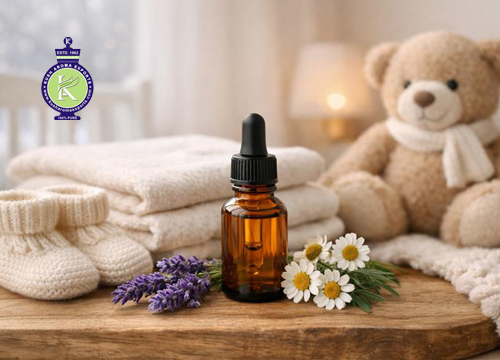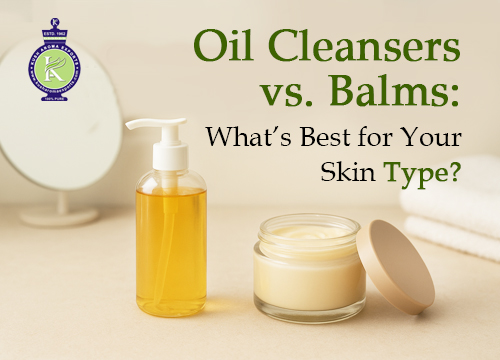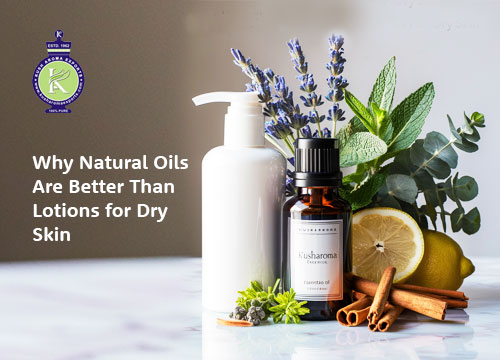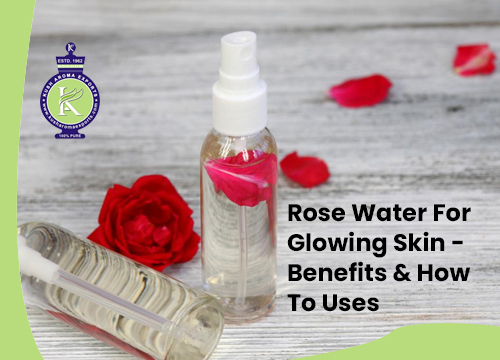People have treasured rose water as a beauty secret for hundreds of years. Its soft scent and many perks for skin health explain why it’s become a favorite in natural skincare routines worldwide. In this post, we’ll take a close look at how rose water can give you glowing skin, share easy ways to use it every day, and talk about mixing it with essential oils to boost its effects. If you’re just starting with natural skincare or want tried-and-true advice to improve your routine, you’ve come to the right place.
The History of Rose Water in Skincare
Rose water is used for ancient civilizations in beauty and welfare. Persians, Egyptians, and Indians were all iconic roses for their aromatic and healing properties. Historical records indicate that Cleopatra herself soaked in rose water to preserve her famous bright skin. This ancient ritual was not completely about luxury, but also about exploiting powerful compounds found in roses to calm the skin, hydrate and rejuvenate the skin. From generations, these practices have developed, but modern natural skincare is forming the basis of resignation.
What Makes Rose Water So Special?
Rose water isn’t just a nice-smelling liquid; it has many perks for different skin types. Here’s why people love rose water:
1. Rose water is rich in antioxidants, which combat free radicals – molecules that lead to oxidative stress leading to premature aging. By neutralizing these free radicals, rose water helps maintain a young glow and delays the formation of fine lines and wrinkles.
2. Anti -inflammatory properties of rose water make it great to calm the natural anti -inflammatory properties of irritated or swollen skin. If you have redness after sunburn, razor burn, or after a facial rose water, it can help reduce discomfort and reduce inflammation.
3. One of the most useful benefits of hydration and moisture rose water is how it is hydrated. It acts as a natural toner that maintains moisture and refreshes the skin. It is important to maintain soft and glowing skin.
4. Balancing pH Levels Keeping skin pH balanced is crucial to maintain its natural barrier, and rose water does just that. It helps restore the skin’s ideal pH after cleaning ensuring your skin stays strong against environmental pollutants and bacteria.
5.Rose water is gentle enough for even the most sensitive skin types. Unlike some synthetic products that can harm the skin by stripping it of its natural oils, rose water nourishes without causing irritation, which can be soothing to use every day.
Key Benefits of Rose Water for Glowing Skin
Let’s delve deeper into the specific benefits rose water can bring to your skin:
Soothing and Calming
Rose water is an outstanding calming product. It soothes irritated skin and reduces redness, and it can provide relief from ailments like eczema or dermatitis. The cooling sensation is essential after long times in the sun or after certain acne treatments that can cause irritation.
Natural Astringent
Rose water’s astringent properties aid in the tightening of pores and draws out excess oil. This is especially beneficial for those with combination or oily skin types as the refined look of closed pores contributes to an overall smoother complexion. Rose water can also round out oil production, thus limiting future breakouts.
Enhances Skin Elasticity
Using rose water on a regular basis can improve your skin elasticity. The natural elements in roses promote blood circulation and stimulate collagen production, which are both important in keeping skin firm and supple. A benefit of using rose water daily is that it can increase your skin elasticity – bigger elasticity means less sagging over time, and perhaps improved appearance.
Boosts Radiance
Rose water helps maintain a healthy, natural glow by moisturizing and repairing the skin. It also offers very mild exfoliating properties to help shed dead skin cells while encouraging new cell development. The gentle refresh from rose water will allow skin to appear brighter with a healthy, natural radiance.
Antiseptic Properties
Because rose water has antiseptic properties, it can help purify skin and help alleviate the onset of acne. When applied to problematic spots, rose water removes germs and bacteria without disrupting skin hydration—a common effect of harsher acne treatments.
Promotes Relaxation and Reduces Stress
The gentle scent of rose water isn’t just a treat for the skin; it’s a delight for the senses. The calming aroma can alleviate stress and create a spa-like experience right at home. Reduced stress levels have long been associated with healthier skin, making rose water a dual-action remedy for both the mind and body.
How to Use Rose Water for Glowing Skin
Integrating rose water into your skincare routine is straightforward, versatile, and beneficial. Here are some practical ways to reap its rewards:
- Daily Toner
How-to:
- Cleanse First: Begin with your regular facial cleanser to remove any dirt or makeup.
- Apply Rose Water: Using a cotton pad, gently dab rose water on your face or spritz directly from a spray bottle.
- Moisturize: Follow up with your favorite moisturizer to lock in hydration.
Why It Works:
This daily practice not only helps in removing residual impurities but also primes your skin for further treatments, leaving it refreshed and balanced.
- Refreshing Mist
How-to:
- Fill a clean spray bottle with rose water.
- Mist your face throughout the day to maintain hydration and combat environmental stressors.
Why It Works:
A quick spritz delivers instant hydration and a revitalizing burst, making it ideal for hot days or long hours in air-conditioned spaces.
- Makeup Setting Spray
How-to:
- After applying makeup, lightly spray your face with rose water to set your makeup in place.
Why It Works:
This not only helps in locking in your makeup, ensuring a longer-lasting finish, but also imparts a natural glow to your skin as you go about your day.
- Post-Shaving Soother
How-to:
- Apply rose water to your face after shaving as a toner to soothe irritation and minimize razor burn.
Why It Works:
The cooling and anti-inflammatory properties provide comfort after shaving, helping the skin to recover quickly from any slight abrasions.
- Facial Steam Enhancer
How-to:
- Prepare a bowl of hot water, add a few tablespoons of rose water, and lean over the bowl with a towel draped over your head.
- Allow the steam to gently open up your pores for 5-10 minutes.
- Follow with a cold splash of water to close the pores.
Why It Works:
The steam infused with rose water helps in deep cleansing by opening up the pores, allowing impurities to be released. After the steam, you can apply a natural face mask for an added boost of hydration.
How to Mix Rose Water With Essential Oils
Rose water can be an excellent base in which you can add a variety of essential oils for increased benefits. Essential oils not only provide additional therapeutic properties, but also create a aromatic experience that increases your mood. Here are some popular essential oils to mix with rose water:
- Lavender Essential Oil
Benefits:
Calming and Relaxing: Lavender oil is known for its stress relieving properties. When rose is mixed with water, it can further calm the swelling and sensitive skin, promoting relaxation.
Antibacterial: It helps to purify the skin, reduces the occurrence of acne and blames.
Usage Tip:
Mix a few drops of lavender oil with a spoon of rose water and gently pat on your skin after cleaning for a cool and clear color.
- Frankincense Essential Oil
Benefits:
Anti-Aging Properties: Frankinance oil has been acclaimed to reduce the appearance of fine lines and wrinkles. This promotes cell regeneration and improves skin elasticity.
Deep Penetration: This oil effectively calms and revives mature skin.
Usage Tip:
Mix 1-2 drops of frankinance oil in a small bottle of water daily. Use this mixture as a night toner to support the skin repair and maintain a young glow.
- Geranium Essential Oil
Benefits:
Skin Balancing: Geranium oil can help balance sebum production, making it suitable for both oily and dry skin types.
Brightening: It also contributes to a more even skin tone and enhances overall radiance.
Usage Tip:
Blend several drops of geranium oil into your rose water. Use it as a refreshing spritz throughout the day or as a cleansing toner to boost your skin’s natural glow.
Neroli Essential Oil
Benefits:
Regenerative Properties: Neroli oil assists in regenerating skin cells, reducing scarring, and smoothing wrinkles.
Soothing Scent: Its pleasant, uplifting fragrance can also help alleviate stress and elevate mood.
Usage Tip:
Combine 1-2 drops of neroli oil with your rose water solution and apply it after washing your face to enhance skin repair and rejuvenation.
Safety and Dilution Tips
Always Dilute: Essential oils are highly concentrated. Always dilute a few drops in a carrier liquid like rose water before applying to your skin.
Patch Test: Before using any new blend on your face, conduct a patch test on a small area of your skin to check for any adverse reactions.
Storage: Store your rose water and essential oil blends in a cool, dark place to preserve their potency and efficacy.
By merging these essential oils with rose water, you unlock a synergistic effect that not only improves your skin’s appearance but also transforms your daily skincare routine into a therapeutic ritual.
Incorporating Rose Water Into Your Daily Routine
Integrating rose water into your skincare regimen doesn’t have to be a complex process. Here’s a simple daily routine to help you make the most of this natural wonder:
Morning Routine
- Cleanse: Start with a gentle cleanser to remove any overnight impurities.
- Tone: Use a cotton pad soaked in rose water or spritz your face with a rose water bottle.
- Essential Oil Boost: Optionally, add a drop or two of an essential oil of your choice to enhance the formula.
- Moisturize: Seal in the moisture with a good-quality moisturizer.
- Sun Protection: Apply sunscreen to protect your skin from harmful UV rays if you’ll be stepping out.
Evening Routine
- Cleanse: Remove makeup and dirt accumulated over the day with a gentle cleanser.
- Steam: If you’re up for it, use the rose water steam method once or twice a week to give your skin a deep cleanse.
- Tone and Treat: Use rose water as a toner. If desired, apply a serum or targeted treatment.
- Hydrate: Finish with a rich night cream or oil to lock in moisture and aid overnight repair.
- Relax: Take a moment to enjoy the natural fragrance of your rose water blend as a way to unwind and relieve daily stress.
Maintaining consistency in your routine is key to achieving that coveted, glowing skin. With regular use, the skin benefits from continuous hydration, balanced pH, and a refreshing boost of antioxidants.
The Science Behind Rose Water’s Efficacy
Rose water contains various bioactive compounds like polyphenols, flavonoids, and vitamins. These compounds contribute to its multiple actions on the skin:
Anti-inflammatory agents help calm redness and inflammation.
Antioxidants work to neutralize free radicals that can damage skin cells.
Natural acids can act as a gentle exfoliator to remove dead skin cells without harsh scrubbing.
Scientific studies continue to explore these active ingredients, and while research is ongoing, the traditional use of rose water provides a solid foundation for its current popularity in skincare formulations.
Final Thoughts
Incorporating rose water into your skincare routine can lead to visibly glowing, rejuvenated skin. Its natural properties work in harmony with your skin’s biological processes to soothe, hydrate, and protect. Whether you’re using it as a daily toner, a refreshing mist, or mixing it with essential oils for added benefits, this age-old remedy proves that nature often holds the key to modern beauty challenges.
Rose water offers a gentle, effective alternative to harsh chemicals, making it perfect for anyone who wants a natural way to boost their skin’s radiance and overall health.
If you’re looking for high-quality rose water or best essential oil for your skin care routine explore the range from Kush Aroma Export. Our commitment to quality and purity ensures that you’re not only indulging in timeless beauty practices but also embracing products that support your skin’s natural brilliance.










